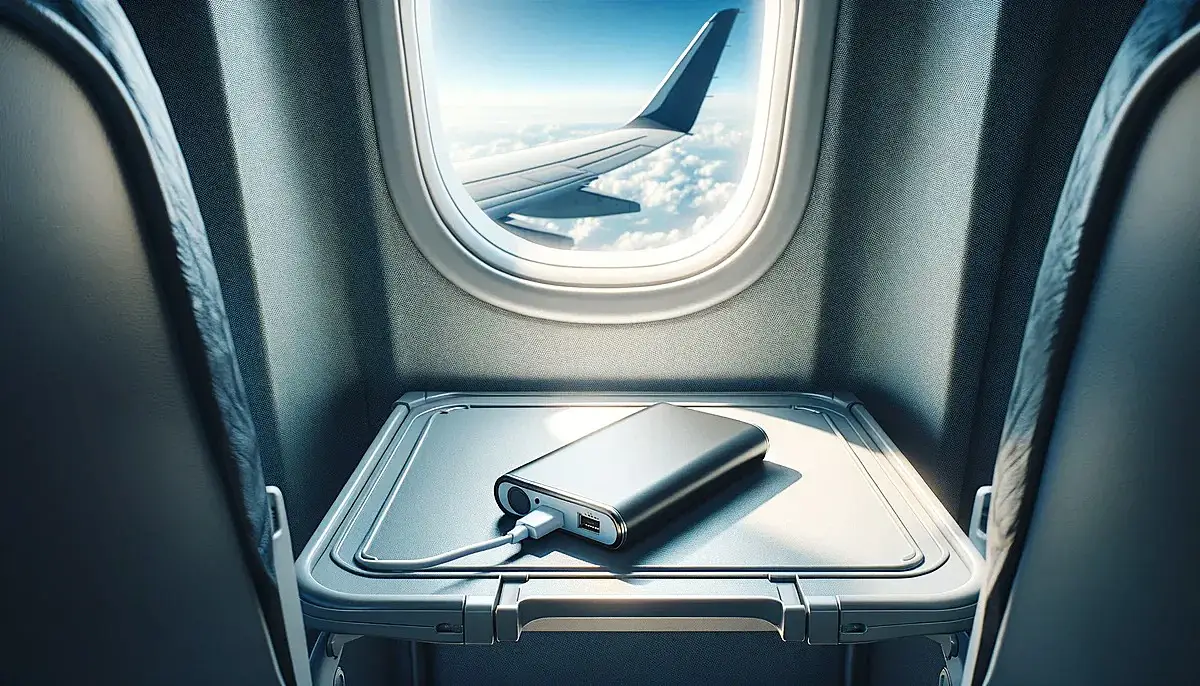
Aircraft & security. Southwest Airlines limits the use of power banks on board
Due to fire risk, charging in bags and overhead compartments is prohibited

Southwest Airlines has announced a new safety policy that will impose significant restrictions on the use of portable chargers (power banks) aboard its aircraft. Starting next Wednesday, May 28, passengers intending to use these devices to charge smartphones or other electronic gadgets must keep them in plain sight and will no longer be allowed to store them in bags or overhead bins while in use. This measure makes Southwest the first US carrier to implement such a restrictive rule, highlighting the growing safety concerns related to lithium-ion batteries.
"Nothing is more important to Southwest than the safety of its customers and employees", said a spokesperson explaining the new directive. The primary reason for this precaution lies in the risk of fire or overheating associated with the lithium-ion batteries that power most power banks. The Federal Aviation Administration (FAA), the authority responsible for civil aviation in the US, has repeatedly warned about the dangers of these batteries onboard aircraft, where a manufacturing defect, physical damage, or uncontrolled overheating (the so-called "thermal runaway") can easily trigger smoke or flames.
FAA data support this concern: between March 2006 and April 27, 2025, the authority has recorded over 600 verified incidents involving lithium batteries in flight, manifested by smoke, fire, or extreme heat. More than one-third of these incidents or inconveniences originated from portable batteries. In 2025 alone, over 20 confirmed episodes have been documented, with another 11 still under investigation. "In the rare event that a lithium battery overheats or ignites, rapid access is critical. Keeping power banks in plain sight allows for faster intervention and helps protect everyone on board", added the Southwest spokesperson, emphasizing how visibility is crucial for timely action by the crew.
The carrier’s decision follows an already established trend in Asia (see AVIONEWS) and aligns with responses to recent incidents. In January 2025, a fire aboard an Air Busan aircraft (see again AVIONEWS) at Gimhae International Airport, during preparation for departure, has been linked to "remnants of a power bank" which showed "numerous signs of electrical melting". This episode prompted South Korea to ban the transportation of portable chargers and e-cigarettes in overhead bins of carry-on luggage. Subsequently, several prominent Asian airlines, including Thai Airways, Cathay Pacific, Singapore Airlines, Scoot, AirAsia, China Airlines, and EVA Air, have adopted similar policies, imposing restrictions on in-flight use and requiring such devices to be kept in plain sight, for example, in the seat pocket (see AVIONEWS).
The urgency of such measures was further highlighted last April when an American Airlines flight from Indianapolis to Los Angeles was diverted to Chicago after a passenger’s portable charger caught fire, requiring the cabin crew to extinguish the flames. These episodes underscore the seriousness of the risk and the necessity for air carriers to adopt stricter safety protocols to protect passengers and crew.
AVIONEWS - World Aeronautical Press Agency